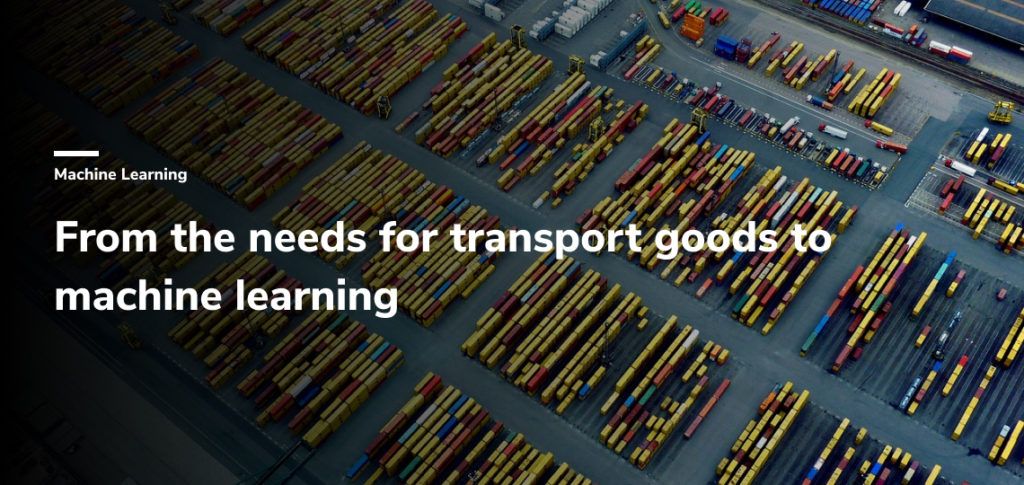An easy way to get to know Machine Learning
Logistics allows you to connect places of consumer concentration with production facilities, without losing money and time. The widespread use of logistics in the economy began in the 60-70s. XX century. This, to a greater extent, is associated with technological advances and the business needs of those times.

Throughout the history of mankind, very often there have been cases where the goods that people need were produced far away from their place of residence. Thanks to logistics, territories that could produce only one product began to participate in world trade. It was possible to create a very effective system of international trade and provide people of the entire planet with a large selection of goods. Also, it became possible to deliver perishable food products in the shortest possible time, which significantly reduces their price, and the consumer has the opportunity to purchase them without overpaying for the percentage of rejection.
From the needs for transport goods to machine learning
Logistics allows you to connect places of consumer concentration with production facilities, without losing money and time. The widespread use of logistics in the economy began in the 60-70s. XX century. This, to a greater extent, is associated with technological advances and the business needs of those times. Thanks to the development of technology, it became possible to carry out end-to-end monitoring of all stages of the movement of raw materials, billets, and finished products from the primary source of raw materials to the final consumer. The term “logistics” began to be used in situations involving the clear planning of an agreed sequence of actions. For the effective management of material flows in the economy, applied methods of applied mathematics, graph theory, and transport problems of higher mathematics were applied. With their help, the business receives income by skillfully optimizing transportation.
In the modern world, due to a number of global trends in world development, logistics systems are developing significantly. The process of planning, organizing, and managing the delivery of personal and non-profitable delivery speeds up. A better process requires control over all transport operations arising in combination with the use of modern means of information technology. Algorithms for providing relevant information to the owners affect the speed and quality of decision-making. And increasingly, logistics companies are introducing artificial intelligence mechanisms to keep up with global trends and become the best, winning in the competition.
Machine learning is one of the most popular approaches in artificial intelligence. Over the past decade, machine learning has become an integral part of our lives. This is effective because the machine can perform mechanical repetitive tasks. As more data becomes available, machine learning becomes a necessary element of technological progress. ML provides huge opportunities in the field of logistics. ML teaches computers to make a decision, instead of a person, and make decisions where it is not possible for a person to do this because of the large amount of data.

Improvement of logistics activities
The possibilities of the practical application of ML in the logistics sphere are quite wide:
1. Recommended storage systems.
2. Logistic ratings, comparison of goods by transport characteristics.
3. Decision-making. Should the product be packaged in additional containers? Will the goods be damaged during transportation? Is this product closer in characteristics to goods that received damage during transportation?
4. Recognition of images and markings for cargo segmentation.
5. Identification of illiquid stocks.
6. For internal typing of a service level. Determining the level of service, depending on the parameters important for the logistics company: delivery speed, whether there were complaints, etc.
In conclusion, it should be noted that the need for logistics companies that own ML methods throughout the world and in our country is constantly growing. Logistic process management must keep up with the times in order to reason and calculate quickly and efficiently while minimizing costs and providing the best service.